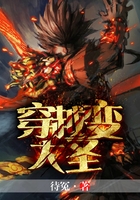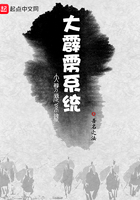At first Jimmy thought they were the perpetrators of the deed, but almost immediately he recognized one of them as O'Donnell, the erstwhile traffic officer who had been promoted to a detective sergeancy since Jimmy had first met him.
"Compton has been murdered," said Jimmy dully. "He is dead."
"Put up your hands," snapped O'Donnell for the second time, "and be quick about it!"
It was then for the first time that Jimmy realized the meaning that might be put upon his presence alone in the office with his dead employer. O'Donnell's partner searched him, but found no weapon upon him.
"Where's the gat?" he asked.
"Whoever did this probably took it with him." said Jimmy. "Find the watchman."
They made Jimmy sit down in a corner, and while one of them guarded him the other called up central, made his report, and asked for an ambulance and the wagon. Then O'Donnell commenced to examine the room. A moment later he found an automatic behind the door across the room from where Compton's body lay.
"Ever see this before?" asked O'Donnell, holding the pistol up to Jimmy.
"If you're asking me if it's mine, no," said Jimmy. "I have a gun, but it's home. I never carry it. I didn't do this, O'Donnell." he continued.
"There was no reason why I should do it, so instead of wasting your time on me while the murderer escapes you'd better get busy on some other theory, too. It won't do any harm, anyway."
The wagon came and took Jimmy to the station, and later he was questioned by the lieutenant in charge.
"You say this is not your pistol?" asked the police officer.
"It is not," replied Jimmy.
"You never saw it before?"
"No, I have not."
The lieutenant turned to one of his men, who went to the door, and, opening it, returned almost immediately with Bince.
"Do you know this man, Mr. Bince?" asked the lieutenant.
"I certainly do," said Bince.
"Did you ever see this pistol before?"
Bince took the weapon and examined it.
"Yes," he said.
"Under what circumstances?" asked the lieutenant.
"It was one of two that Mr. Compton had in his desk. This one he loaned to Torrance two or three weeks ago. I was in the office at the time."
The officer turned toward Jimmy.
"Now do you recognize it?" he asked.
"I haven't denied," said Jimmy, "that Mr. Compton had loaned me a pistol. As a matter of fact, I had forgotten all about it. I do not particularly recognize this one as the weapon he loaned me, though it is of the same type. There is no way that I could identify the particular weapon he handed me."
"But you admit he loaned you one?"
"Yes," said Jimmy.
"What did you do with it?" asked the policeman.
"I put it in my desk within five minutes after he gave it to me, and I haven't seen it since."
"You say you couldn't identify the pistol?" said the officer.
Jimmy nodded.
"Well, we can, and have. The number of this pistol was recorded when Mr. Compton bought it, as was the number of the other one which is still in his desk. They were the only two pistols he ever bought, according to Mr. Bince, and his daughter, aside from one which he had at home, which has also been accounted for. The drawer in which Mr. Bince saw you place this pistol we found open and the pistol gone. It looks pretty bad for you, young fellow, and if you want a chance to dodge the rope you'd better plead guilty and tell us why you did it."
Jimmy was given little opportunity for sleep that night. A half-dozen times he was called back to the lieutenant's office for further questioning. He commenced to realize that the circumstantial evidence was strongly against him, and now, as the girl had warned him, his entirely innocent past was brought up against him simply because his existence had been called to the attention of a policeman, and the same policeman an inscrutable Fate had ordained should discover him alone with a murdered man.
O'Donnell made the most of his meager knowledge of Jimmy. He told the lieutenant with embellishments of Jimmy's association with such characters as the Lizard and Little Eva; but the police were still at a loss to discover a motive.
This, however, was furnished the next morning, when Elizabeth Compton, white and heavy-eyed, was brought to the station to identify Jimmy.
There was deep compassion in the young man's face as he was ushered into the presence of the stricken girl, while at sight of him her's mirrored horror, contempt, and hatred.
"You know this man?" asked the lieutenant.
"Yes," she replied. "His name is Torrance. I have seen him a number of times in the past year. He worked as a clerk in a store, in the hosiery department, and waited on me there. Later I "--she hesitated--" I saw him in a place called Feinheimer's. He was a waiter. Then he was a sparring partner, I think they call it, for a prizefighter. Some of my friends took me to a gymnasium to see the fighter training, and I recognized this man.
"I saw him again when he was driving a milk-wagon. He delivered milk at a friend's house where I chanced to be. The last time I saw him was at my father's home. He had obtained employment in my father's plant as an efficiency expert. He seemed to exercise some strange power over father, who believed implicitly in him, until recently, when he evidently commenced to have doubts; for the night that the man was at our house I was sitting in the music-room when they passed through the hallway, and I heard father discharge him. But the fellow pleaded to be retained, and finally father promised to keep him for a while longer, as I recall it, at least until certain work was completed at the plant.
This work was completed yesterday. That's all I know. I do not know whether father discharged him again or not."















